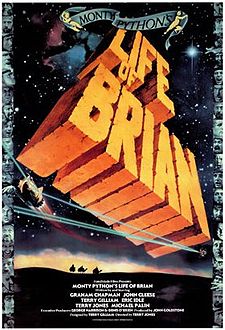
 |
Freethought & Rationalism ArchiveThe archives are read only. |
|
|
#31 | |
|
Contributor
Join Date: Mar 2006
Location: Falls Creek, Oz.
Posts: 11,192
|
For the citations you are going to have to browse Rowan William's Book on Google Books for the instances where he compares the thinking of Arius and that of Plotinus, whom Williams claims Arius follows.
There are many citations - Here is one at (p.184) Quote:
|
|
|
|
|
|
#32 |
|
Moderator - General Religious Discussions
Join Date: Dec 2004
Location: New South Wales
Posts: 27,330
|
If Arius was influenced by Neo-Platonism, that's no kind of evidence that he wasn't a Christian. Lots of Christians have been influenced by Neo-Platonism. Augustine was influenced by Neo-Platonism.
|
|
|
|
|
#33 | ||||
|
Contributor
Join Date: Mar 2006
Location: Falls Creek, Oz.
Posts: 11,192
|
Quote:
Quote:
Quote:
Quote:
|
||||
|
|
|
|
#34 |
|
Moderator - General Religious Discussions
Join Date: Dec 2004
Location: New South Wales
Posts: 27,330
|
False. Just false. There is no valid correlation.
|
|
|
|
|
#35 | |
|
Contributor
Join Date: Mar 2006
Location: Falls Creek, Oz.
Posts: 11,192
|
Quote:
What does the evidence suggest? The "Porphyrian" Arius On Stage |
|
|
|
|
|
#36 |
|
Moderator - General Religious Discussions
Join Date: Dec 2004
Location: New South Wales
Posts: 27,330
|
The evidence suggests that Arius did not hold the same beliefs as Athanasius. That's not a new discovery, and it doesn't change the fact that what you said before was just false.
|
|
|
|
|
#37 | |
|
Contributor
Join Date: Mar 2006
Location: Falls Creek, Oz.
Posts: 11,192
|
Quote:
Constantine On Arius..333 CE |
|
|
|
|
|
#38 | |
|
Contributor
Join Date: Mar 2006
Location: Falls Creek, Oz.
Posts: 11,192
|
(1) Arius's satire is cited by Athanasius
‘The heaven,’ as the Prophet says, ‘was astonished, and the earth shuddered’ at the transgression of the Law. But the sun, with greater horror, impatient of the bodily contumelies, which the common Lord of all voluntarily endured for us, turned away, and recalling his rays made that day sunless.The Sun as "Sol Invictus" was revered more than Jesus around the time of Nicaea The inscriptions which have been recovered from the London Mithraeum indicate that a great deal of formal reverence was given to "Sol Invictus". Quote:
|
|
|
|
|
|
#39 |
|
Veteran Member
Join Date: Oct 2004
Location: Bordeaux France
Posts: 2,796
|
Arausio is the gallic name of the town of Orange in Provence, not very far from Marseilles. There are many gallo-roman ruins there, including a big theater. Of course, Arius went there and made a long speech (in gaulish), which has been recorded and will soon be translated into coptic, so that our friend Athanasius can understand it. (April 2nd, 2010 - a bit late).
|
|
|
|
|
#40 | ||
|
Contributor
Join Date: Mar 2006
Location: Falls Creek, Oz.
Posts: 11,192
|
Quote:
 Monty Python's Life of Brian Quote:
|
||
|
|
| Thread Tools | Search this Thread |
|